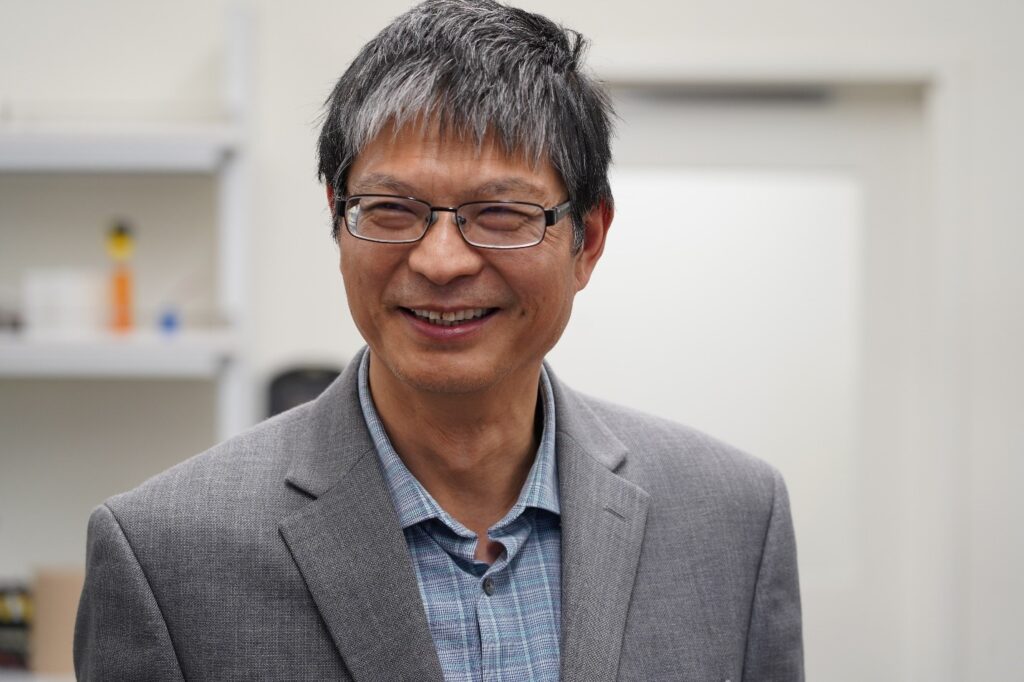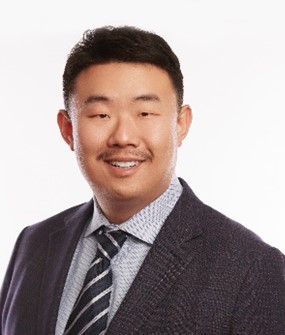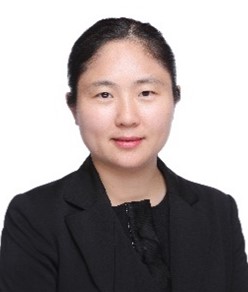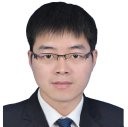Panel on EV Battery Reuse and Recycling
Panel Moderator:
Prof. Chris Mi – San Diego State University, cmi@sdsu.edu
Session Speakers/Panelist
- Dr. Chao Yan
Princeton NuEnergy, USA - Confirmed speaker from Thailand EV company
- Dr. Ariya Sangwongwanich
Assistant Professor, Aalborg University, Denmark - Dr. Yun Yang
Assistant Professor, Nanyang Technological University, Singapore
Honorary Research Assistant Professor, The University of Hong Kong - Dr. Caiping Zhang
Professor, School of Electrical Engineering, Beijing Jiaotong University, China - Dr. Jun Xu
Professor, School of Mechanical Engineering, Xi’an Jiaotong University, China
Director, Digital Energy Research Institute, GRESGYING & XJTU
Director, Energy Storage and Inverter Institute, ADUC & XJTU - Dr. Haifeng Dai
Professor, School of Automotive Studies, Tongji University, China
Director, Electrochemical power supply department, National Fuel Cell Vehicle and Powertrain System Research and Engineering Center, China
Session Format: Informal talks
Abstract
The number of electric vehicles (EVs) on the roads is growing rapidly. EV batteries today, almost exclusively lithium-ion based, can last about 10 years before they can no longer provide the required performance such as power and range. The batteries in EVs cost heavily in both production and recycling. Handling the retired EV batteries is thus important both for economic and environment (e-waste).
These retired batteries, though no longer roadworthy in the vehicle, still have considerable lifetime for renewable energy and smart grid applications where the requirement for energy and power density is not as stringent in vehicles and the environment are less harsh, e.g., to buffer the volatile nature of the energy output of renewable energy systems. The second-life use extends the life cycle of these batteries after their first life in EVs, improves the environment, reduces EV ownership cost by selling them for second-life use, minimize the virgin material exploitation, and reduces the cost of BESS in renewable energy systems through the reuse and remanufacturing process exists.
However, there are a number of barriers to overcome in the deployment of second-life EV batteries, including how to properly remove them from vehicles, transport, store, test, and select second-life them for storage applications; how to quickly and accurately identify the battery’s health conditions before and after deployment in the new application, e.g., grid storage; how to dynamically manage them so as to minimize degradation and optimize usage; and how to meet various standards related to fire hazardous mitigation/prevention, certification, permit, and safety. These issues can be addressed through different phase of product life cycle, e.g., design, manufacturing, operation, and recycling (i.e., end-of-life). This special session will take a thorough look at the reuse and recycle of electric vehicle batteries and power electronics.
Panel moderator and speaker profile

Chris Mi is the Distinguished Professor of Electrical and Computer Engineering at San Diego State University. He is a Fellow of IEEE (Institute of Electrical and Electronics Engineers) and SAE (Society of Automotive Engineers). He is also the Director of the US Department of Energy-funded Graduate Automotive Technology Education (GATE) Center for Electric Drive Transportation at SDSU. He was previously a faculty member at the University of Michigan-Dearborn from 2001 to 2015, and an Electrical Engineer with General Electric from 2000 to 2001. He also served as the CTO of 1Power Solutions from 2008 to 2011, and CTO of EV Safe Charger, Inc. from 2021. Dr. Mi received his Ph. D from the University of Toronto, Canada, in 2001.

Dr. Chao Yan is the Chief Executive Officer and Founder of Princeton NuEnergy. He is a research scientist at Princeton University in the Mechanical & Aerospace Engineering and Chemical & Biological Engineering departments, where his research is mainly focused on energy conversion, fuels, and batteries. He is also a founder of Princeton NuEnergy (PNE) and a co-inventor of the direct recycling of lithium batteries technology based on LPAS (low-temperature plasma-assisted separation). He has published over 30+ high-impact publications and 40+ conference presentations in the energy field. He is a leading expert in physical chemistry and battery materials. He earned his Ph.D. in Physical Chemistry from the New Jersey Institute of Technology. In business, he has administered and operated a serial enterprise since 2014. Dr. Yan has combined his two passions of science and business by founding and leading PNE.

Ariya Sangwongwanich received the B.Eng. degree in electrical engineering from Chulalongkorn University, Thailand, in 2013, and the M.Sc. and Ph.D. degree in energy engineering from Aalborg University, Denmark, in 2015 and 2018, respectively. He is currently working as an Assistant Professor at the Department of Energy Technology, Aalborg University, where he is a Vice-Leader of Photovoltaic Systems research program. His research interests include control of grid-connected converters, photovoltaic systems, reliability in power electronics, and multi-level converters. He was a Visiting Researcher with RWTH Aachen, Aachen, Germany in 2017 and University of Cambridge, Cambridge, United Kingdom in 2023. Dr. Sangwongwanich was the recipient of the Danish Academy of Natural Sciences’ Ph.D. Prize and the Spar Nord Foundation Research Award for his Ph.D. thesis in 2019.

Dr. Yun Yang received his B.Sc. degree in Electrical Engineering from Wuhan University in 2012 and Ph.D. degrees in Electrical Engineering from The University of Hong Kong in 2017. From 2020 to 2022, he was a Research Assistant Professor at the Department of Electrical Engineering, The Hong Kong Polytechnic University. Now, he is an Assistant Professor at the School of Electrical and Electronic Engineering, Nanyang Technological University and an Honorary Research Assistant Professor at the Department of Electrical and Electronic Engineering, The University of Hong Kong. He has authored or coauthored more than 70 technical papers, including 36 refereed journal publications. His research interests include power electronics, wireless power transfer, renewable energy technologies, batteries, and advanced control.

Dr. Caiping Zhang, Professor of School of Electrical Engineering, Beijing Jiaotong University, received PhD from Beijing Institute of Technology in 2010, and was a visiting PhD student at the University of Southampton from 2008 to 2009. Her research interests include lithium-ion battery multi-physics modeling and states estimation in electric vehicles, battery degradation mechanism and remaining life prediction, fault diagnosis, battery control and optimal charging, battery endurance and reliability management strategy. She presided over 3 items of National Natural Science Foundation and 3 subjects of National key research and development program. She has published more than 50 top journal papers. She was awarded National Excellent Young Scientists Fund, Beijing New-star Plan of Science and Technology, National Science and Technology Award 2nd Prize, and Ministry of Education Technology Invention Award 1st Prize.

Dr. Jun Xu is currently a professor and a Ph.D. supervisor with School of Mechanical Engineering, Xi’an Jiaotong University. He is the director of the Digital Energy Research Institute of GRESGYING & XJTU, and the director of the Energy Storage and Inverter Institute of ADUC & XJTU. He serves as IEEE Senior Member, the Vice Chairman of Shaanxi Power Supply Society, and the Chairman of Youth Working Committee of SAE-Shaanxi. His research interests include design, modeling, and control of battery systems, electric vehicles, renewable energy systems, and robots. Dr. Xu has published more than 100 peer-reviewed papers, including 5 ESI highly cited paper. He co-edited and published one monograph in English. He owns more than 20 granted invention patents. He has delivered keynote / invited presentations more than 10 times in academic conferences. He was the conference chair /co-chair / organizing committee co-chair for several international conferences. Dr. Xu has been the Principal Investigator of more than 30 research grants, including National Key Research and Development Plan Project topic, National Natural Science Foundation of China. Dr. Xu has received more the 4 scientific awards as the first contributor, including the 2nd Prize of Shaanxi Province Natural Science.

Prof. Haifeng Dai (Senior Member, IEEE) received the B.S. and M.S. degrees in mechanical engineering and the Ph.D. degree in automotive engineering from Tongji University, Shanghai, China, in 2003, 2005, and 2008, respectively. He is currently a professor at the School of Automotive Studies, Tongji University. He is the director of the electrochemical power supply department in National Fuel Cell Vehicle and Powertrain System Research and Engineering Center. His research interests include battery system management, fuel cell system control, and electrical power conversion for electric vehicles. He has published more than 100 papers in these fields.
